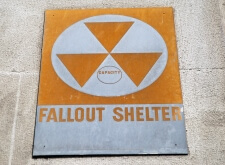France Drones, the World Listens
 With France having recently used Germany’s well-documented problems as a smoke screen for the ills of their own energy market one could be forgiven for thinking that life was rosy in Paris.
With France having recently used Germany’s well-documented problems as a smoke screen for the ills of their own energy market one could be forgiven for thinking that life was rosy in Paris.
That though is not the case, with GDF Suez and EDF Energy facing the pressures of globalisation (in an economy known for its insular perspective) and the wants and mores of the anti nuclear socialist government, all is not well.
To add to the Gallic tale of woe Total, the world’s fourth largest oil company and owners of UK supplier Total Gas & Power, lost their bold and charismatic leader Christophe de Margerie in a tragic aircraft accident whilst EDF Energy and GDF Suez have seen stalwart leaders, Gerard Mestrallet and Henri Proglio leave posts, the former having been a thorn in the side of the anti nuclear rhetoric of Francois Hollande‘s government.
France, for whom GDF Suez, EDF Energy and Total are major players in the UK energy market has long ploughed a lone furrow in energy.
Whether exploiting deregulated markets whilst erecting barriers to entry in their indigenous market or being zealous proponents of nuclear power, France has been a readily identifiable voice in the global energy market.
With nuclear power accounting for 80% of all electricity generation in France, (significantly higher than any of their European counterparts) EDF Energy is battling the current administration’s desire to reduce that reactor stock. The last thing that was needed then was another disturbance to the status quo.
That however is exactly what has happened with the French government being placed on high alert because of a spate of ‘attacks’ on nuclear facilities by what are termed “unidentified drones”.
The reason for these flights is as equally unknown as the identity of the perpetrators however what began as a potentially jolly jape has taken a more sinister turn with the discovery of a series of nationwide, apparently co-ordinated flights suggesting an altogether more professional and organised perpetrator.
France’s Environment and Energy Minister, Ségolène Royal has attempted to calm fears saying:
“We are neither minimising nor dramatising these events. But they pose no threat to the security of nuclear sites.”
In contrast Greenpeace have cautioned that the government’s reaction might be unnecessarily “minimising the risk” claiming that:
“A medium-sized drone could carry an explosive charge big enough to damage the pools [of cold water] in which spent nuclear fuels are stocked”
The prospect of nuclear facilities being openly identified as vulnerable to terrorist attack and the demonstration of an identifiable means of doing so is just what the under pressure energy giants didn’t need.
Hollandes‘s government however may find the scares do an awfully effective job of demonising nuclear power, especially with champions like Proglio no longer to the fore.
Following Germany’s abrupt about turn on nuclear energy, the prospect of France, the home of the reactor, walking away leaves the global energy market watching and waiting. In the meantime EDF Energy and nuclear engineering firm Areva face an uncertain future, just like their German cousins.
